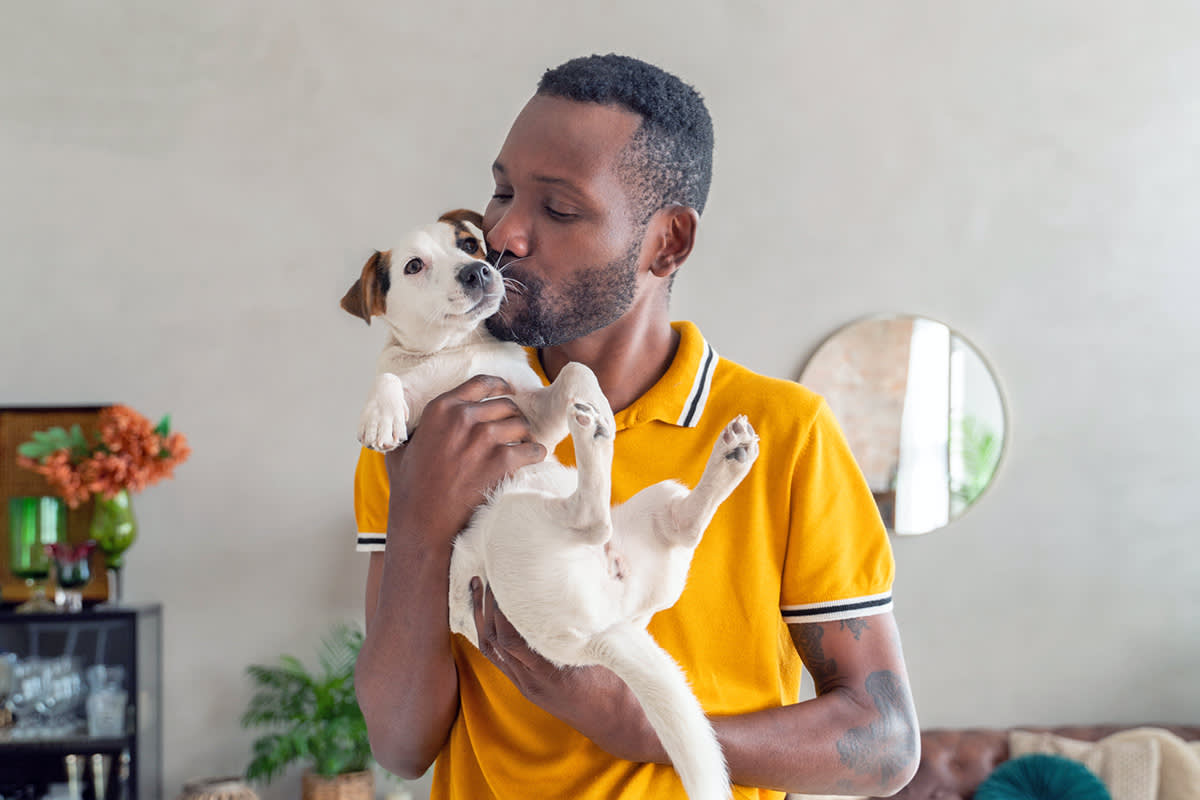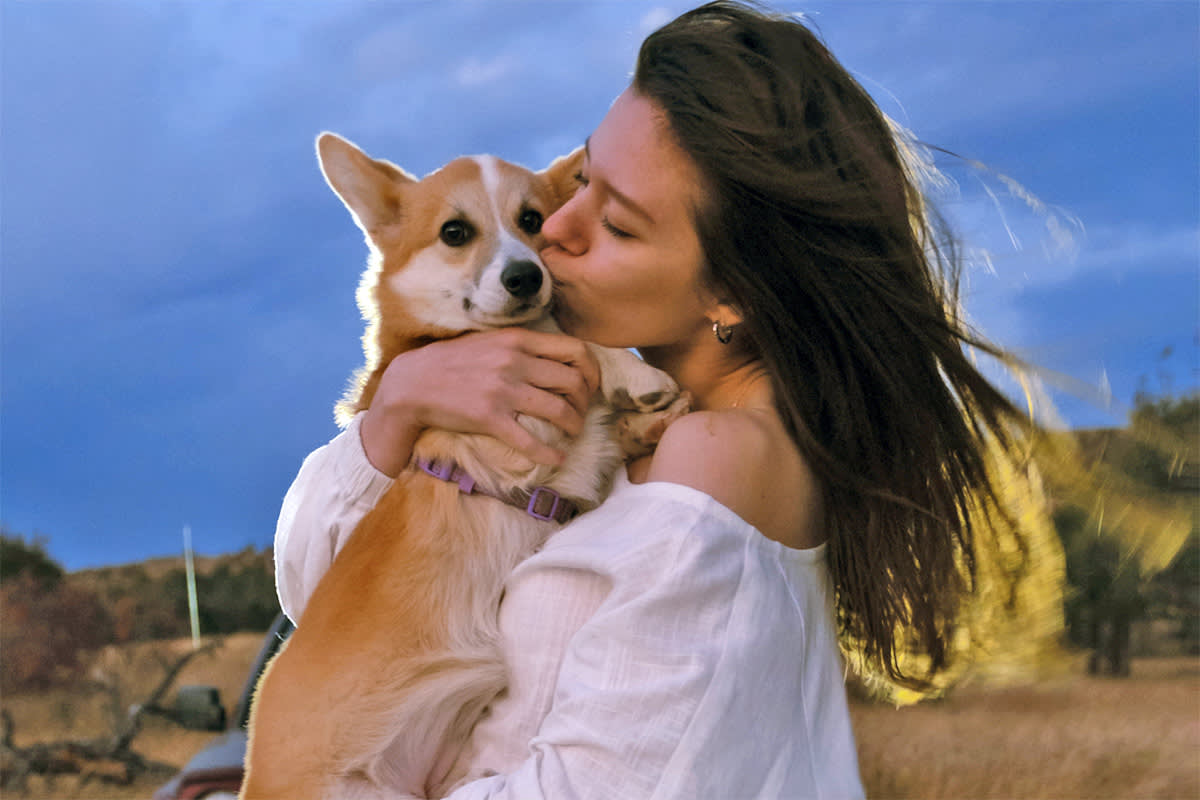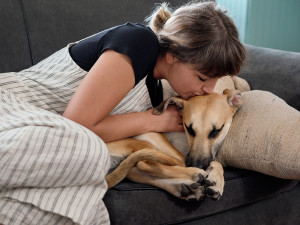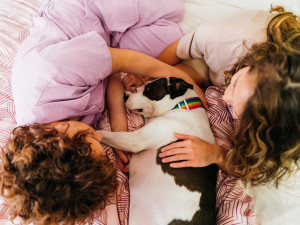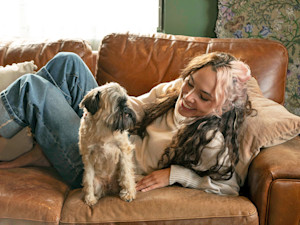Younger People Are More Likely to View Their Pets as Children, New Study Finds
Bring out the puppy strollers.
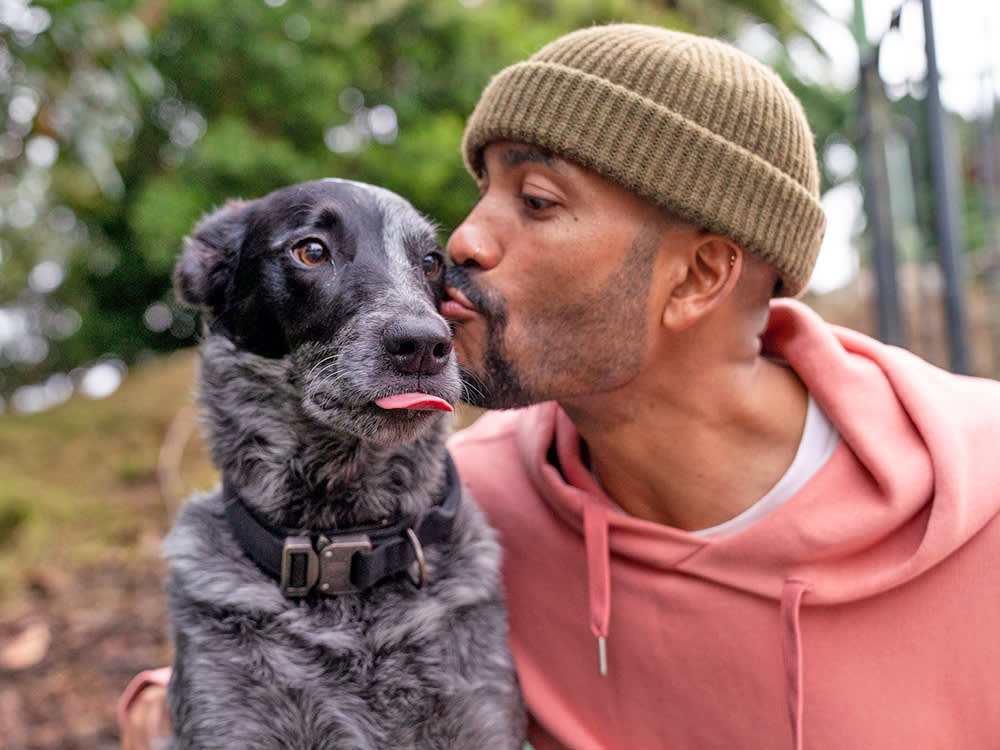
Share Article
It was true when Bob Dylan said it in 1964, and it’s true when Timothee-Chalamet-as-Bob-Dylanopens in new tab says it in 2024: the times they are a-changin’. Generational divides seem to be popping up everywhere we look (remember the great Gen Z Middle Part vs. Millennial Side Partopens in new tab debate of 2021?) — and now, there’s one more sign of the changing tide: attitudes toward pet parenting.
A new studyopens in new tab of 790 pet parents found that younger ones are more likely to see their pets as their children and “more important than humans,” while older pet parents are more likely to view their pets as companion animals and friends.
The study
Researchers at Eötvös Loránd University in Hungary surveyed pet parents to learn how they viewed their relationships with their dogs and what their dogs’ roles are in their lives. They found their respondents fell into three different types of dog guardians: a “companion” group, who saw their pets as companion animals rather than children; “dog parents,” who viewed their pets as children; and a “dual status” group, who viewed their dogs as a mixture of roles.
One important caveat: While the three groups saw their relationships with their dogs differently, each group had a lot of love for their pups. All the participants “declared benefiting greatly from the unconditional love and physical contact provided by their dogs,” wrote lead author Laura Gillet. They all loved petting their dogs, they all found the sight of their dogs enjoyable, and they all avoided harmful tools like electric collars.
The researchers found that older pet parents are more likely to see their dogs as companion animals, and they were less likely to agree that their dogs were more important than humans. Young people, on the other hand, were more likely to view their dog as a child and “more important than any human.”

How do different attitudes toward pet parenting affect the dogs?
The attitudes pet parents hold toward their dogs manifest in a few ways. When it comes to training, pet parents who saw their dogs as a child and “more important than any human” were more likely to show inconsistency in educating their dog — for example, they were less likely to praise a specific behavior every time. “As they were also younger, one hypothesis is that these owners were more likely to be first-time owners,” Gillet wrote.
Dual-status pet parents assigned their pets an assistant or guard dog role, and they were more likely to see their pets as important to their safety. Since their dogs were more likely to be kept for working reasons, these pet parents reported putting effort into training and using positive reinforcement methods.
People in the “dog parents” group were more likely to have indoor-only dogs. They were also more likely to feel unsafe with their dogs off leash, which may indicate that they are more overprotective. That said, their pups were not found to have increased rates of fear or separation anxiety.
Interestingly, the dog-parent profiles also didn’t correlate with the amount of active time spent with their dog walking or playing — so though the pet parents of companion dogs spend less time with their dogs overall, they “appeared to invest just as much time actively caring for their dogs,” Gillet wrote.
In fact, when it came down to it, there were no significant differences in pet behavior or animal welfare between the three groups. The most common behavioral issues — jumping up, chasing animals, territoriality, and overexcitement — were consistent across pet parenting styles. In other words, as long as your pet’s receiving tons of love, activity, and no physical punishment, there’s no right or wrong way to think of your relationship. We can all agree: children, friends, assistants — whatever we call them, we’re lucky to have them.

Sio Hornbuckle
Sio Hornbuckle is the Assistant Editor at Kinship, where they frequently write for the site. As a writer, they specialize in pet news, animal science, and pop culture. They live in New York City with their cat, Toni Collette.
Related articles
![A woman kissing her dog on a couch.]()
Millennials Are Choosing Pets Over Kids, Study Finds
A study found that millennials are choosing pets over kids. Here’s why.
![Woman with her French Bulldog at home on the bed.]()
Is Gen Z Shopping for Dogs Instead of Adopting Because of Social Media?
Shelters are overflowing. One shelter volunteer tells us Gen Z is to blame, but is this true?
![Man hugging his fluffy white dog happily]()
Chemistry Between People and Dogs Is Real (It’s Science)
How the “love hormone” oxytocin connects us with our pups.
Does Your Dog Have Therapy Dog Potential?
Renowned animal behaviorist Patricia McConnell, PhD, on what it takes to be a great therapy dog.
![Bodil Jane illustration, someone waters a garden with a brown dog in it]()
Nature vs. Nurture: Does Your Parenting Style Influence Your Pet’s Behavior?
Your personality may actually have something to do with your pet’s personality.
![Woman laying with her dog on the couch at home.]()
50% of Americans Cancel Plans to Hang out With Their Pets — Are You One of Them?
FOMO doesn’t apply when there’s a dog or cat at home.
